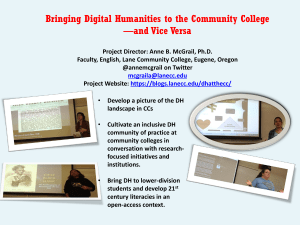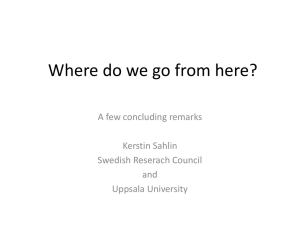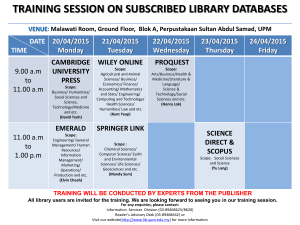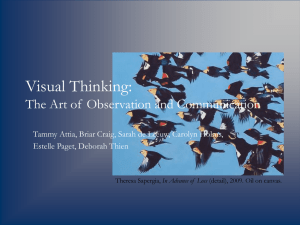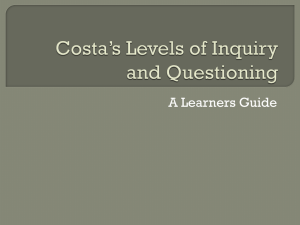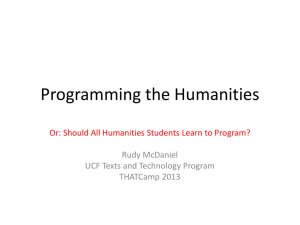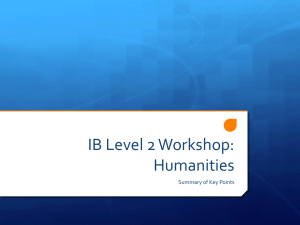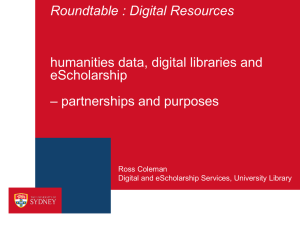REVISION OF LEARNING OUTCOMES FOR LOWER AND UPPER
advertisement
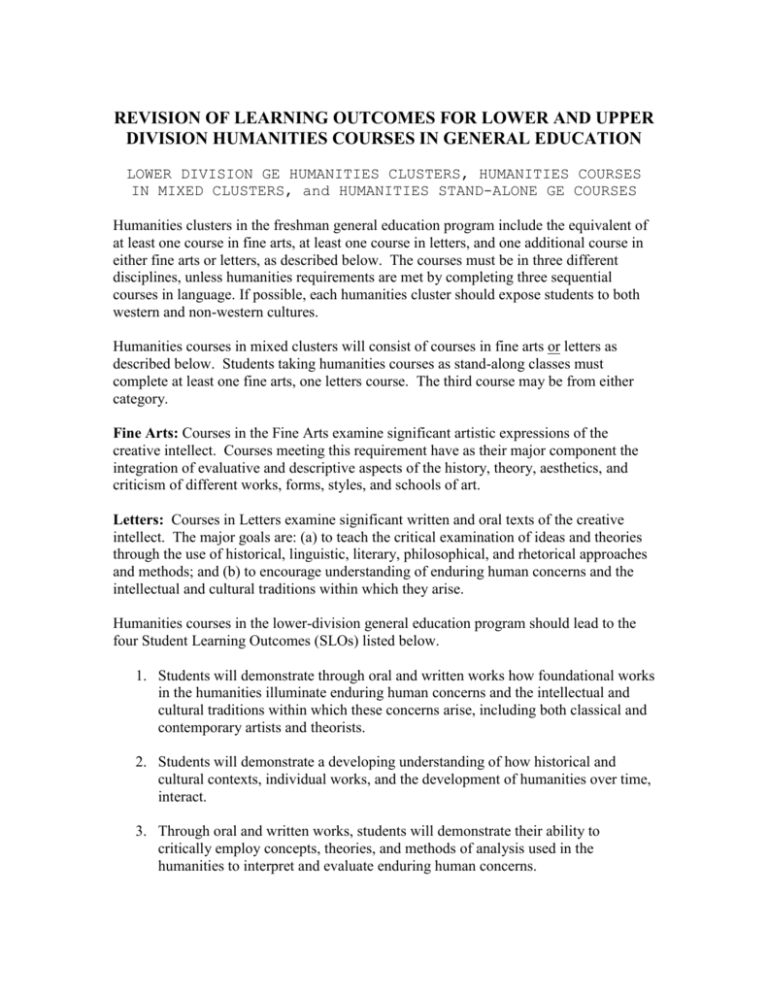
REVISION OF LEARNING OUTCOMES FOR LOWER AND UPPER DIVISION HUMANITIES COURSES IN GENERAL EDUCATION LOWER DIVISION GE HUMANITIES CLUSTERS, HUMANITIES COURSES IN MIXED CLUSTERS, and HUMANITIES STAND-ALONE GE COURSES Humanities clusters in the freshman general education program include the equivalent of at least one course in fine arts, at least one course in letters, and one additional course in either fine arts or letters, as described below. The courses must be in three different disciplines, unless humanities requirements are met by completing three sequential courses in language. If possible, each humanities cluster should expose students to both western and non-western cultures. Humanities courses in mixed clusters will consist of courses in fine arts or letters as described below. Students taking humanities courses as stand-along classes must complete at least one fine arts, one letters course. The third course may be from either category. Fine Arts: Courses in the Fine Arts examine significant artistic expressions of the creative intellect. Courses meeting this requirement have as their major component the integration of evaluative and descriptive aspects of the history, theory, aesthetics, and criticism of different works, forms, styles, and schools of art. Letters: Courses in Letters examine significant written and oral texts of the creative intellect. The major goals are: (a) to teach the critical examination of ideas and theories through the use of historical, linguistic, literary, philosophical, and rhetorical approaches and methods; and (b) to encourage understanding of enduring human concerns and the intellectual and cultural traditions within which they arise. Humanities courses in the lower-division general education program should lead to the four Student Learning Outcomes (SLOs) listed below. 1. Students will demonstrate through oral and written works how foundational works in the humanities illuminate enduring human concerns and the intellectual and cultural traditions within which these concerns arise, including both classical and contemporary artists and theorists. 2. Students will demonstrate a developing understanding of how historical and cultural contexts, individual works, and the development of humanities over time, interact. 3. Through oral and written works, students will demonstrate their ability to critically employ concepts, theories, and methods of analysis used in the humanities to interpret and evaluate enduring human concerns. 4. Students will critically reflect on the formation of human goals and values, and will articulate an understanding of the creativity reflected in works of the humanities that influenced the formation of those values. UPPER DIVISION GE HUMANITIES (AREA C4) Humanities courses in the upper-division general education program are 4-unit upper division courses in history, literature, or philosophy that emphasize an advanced writing component and include significant oral communication or manual communication (sign language) and advanced critical thinking skills. Humanities courses in the upper-division general education should enable students to master the four Student Learning Outcomes (SLOs) listed for lower-division general education humanities. In addition, after completing the upper-division humanities courses, students will: 1. Demonstrate an understanding of and ability to apply the principles, methodologies, value systems, and thought processes employed in human inquiries. 2. Demonstrate in their oral and written work an understanding of the cultural endeavors and legacies of human civilization. 3. Be able to discuss, deliberate, and write about opposing viewpoints in an insightful and logical manner. Be able to present an opposing side fairly and to criticize the argument rather than attacking the person. 4. Demonstrate a developing intellectual curiosity and a habit of lifelong learning, through choice of research topics, the number and quality of questions asked in class, the application of course concepts or themes to lived experiences or world events, or through other similar means. 5. Demonstrate the potential for participating in and contributing to a democratic society as an informed, engaged, and reflective citizen.
